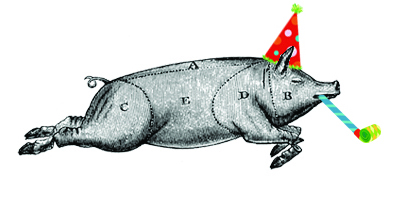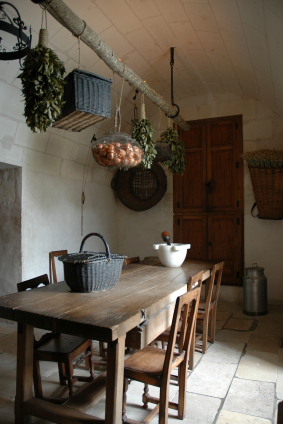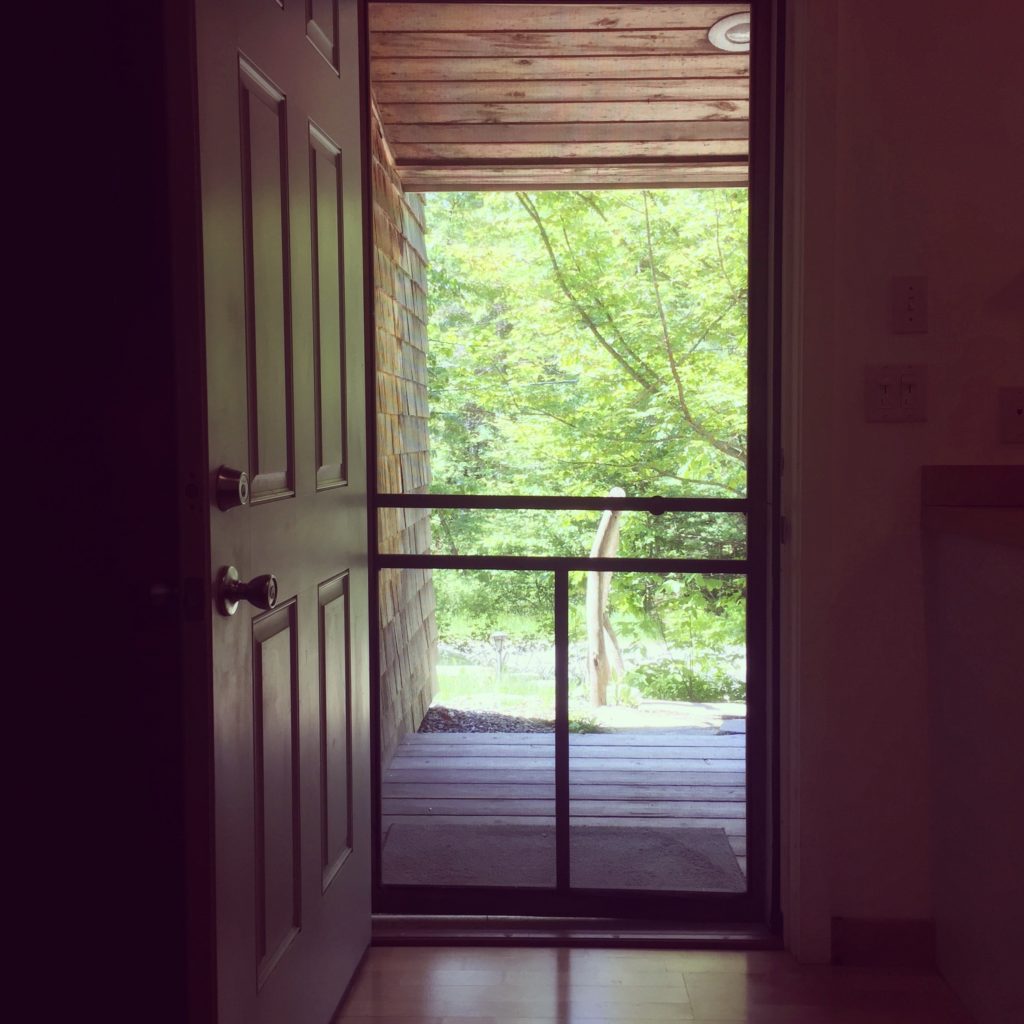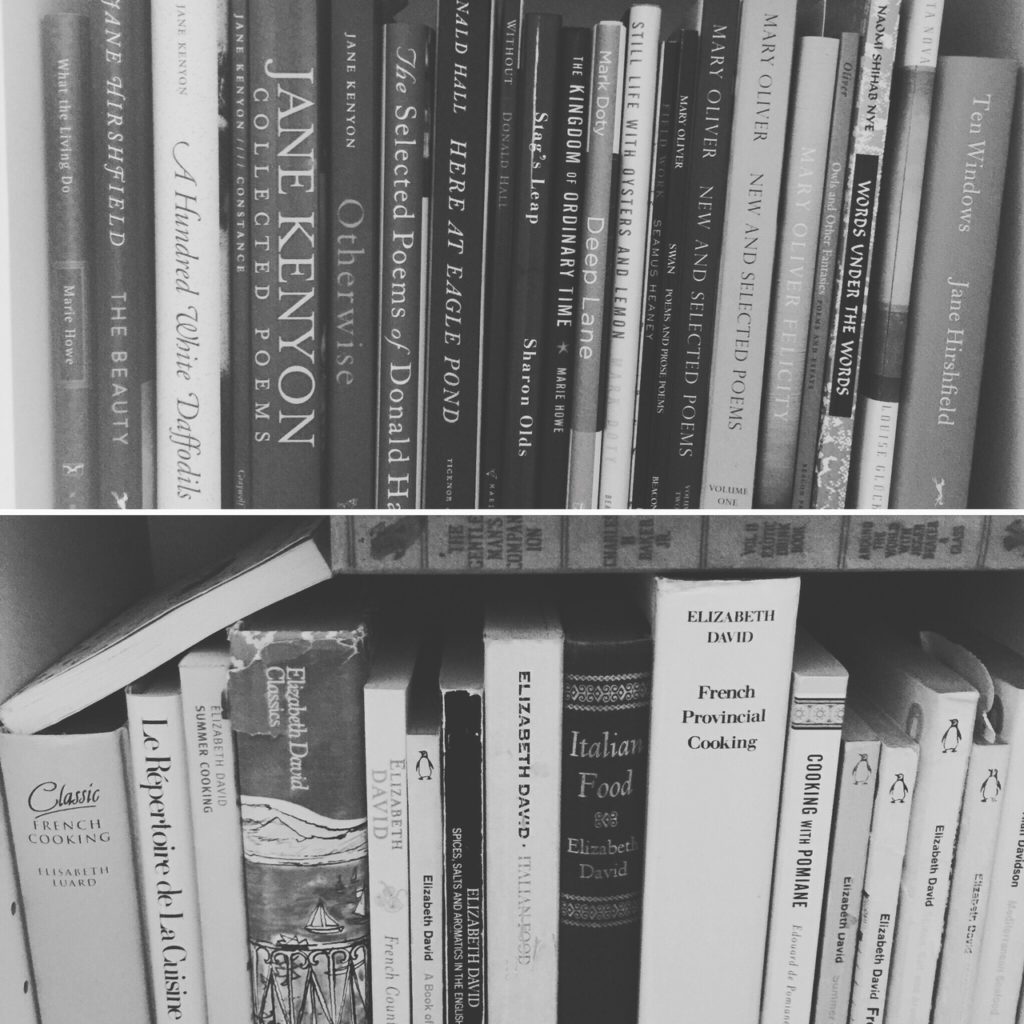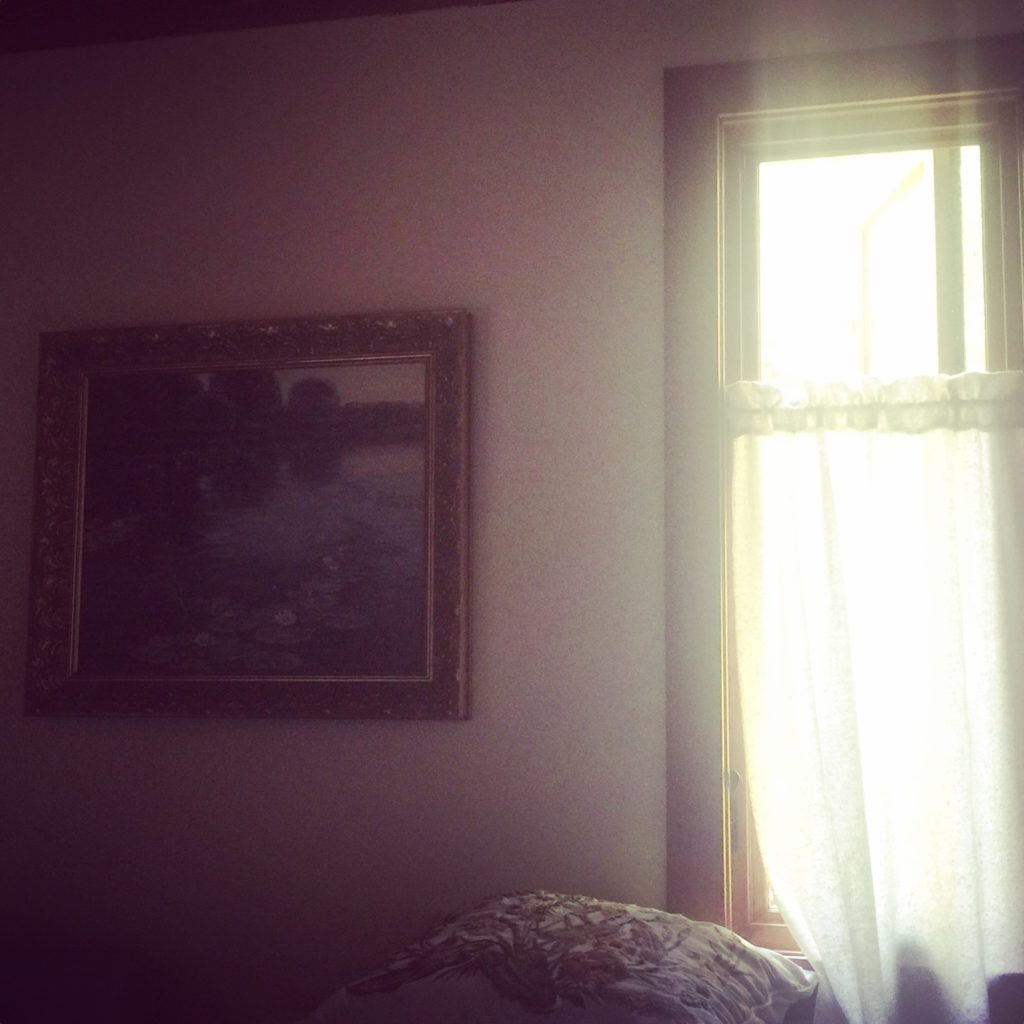My office was in the windowless basement of an asbestos-lined, faux-Georgian building outside Manhattan when I first began thinking about launching Poor Man’s Feast. Skull-and-crossbone construction signs were taped to locked interior stairwell doors, and more than once I became trapped between floors on my way to or from a meeting and had to wait to be sprung by someone — a chair-throwing art director; a sales manager and mother of a three year old little girl with a voice like Al Pacino — so that I wouldn’t have to sleep there overnight. Our work area was commonly referred to as The Morgue, and not long after starting there, I began to resemble the Tom Hanks character in Joe Versus the Volcano.
Eventually, I began to look elsewhere for employment, and came close to being offered a job with a Manhattan cookbook publisher (I’ve moonlighted as a cookbook editor for years). But there was a problem. Actually, two.
The woman who got it, a colleague said, has a blog. And you don’t. Also, she has more, well— you know— energy.
So I went back to my little office-in-the-morgue, and, having discovered that I could finish a week’s worth of work in two days, closed my door and launched Poor Man’s Feast. Initially, it was meant to be a daily publication (see energy, above), and a place where readers could go to find a simple, easy, delicious recipe that would cost them very little. The food I wrote about would always have context — a story; some history; connection to place and person and time — but the focus of the writing would be primarily on the recipe. It sounded like a good idea.
It’ll never work, my colleague said. It’s the word POOR. Nobody likes the word POOR.
It was getting to be Thanksgiving, I had a few days off, and I gave the whole business some serious thought. And then I broke the rules: in my heart of hearts, I knew this colleague was wrong. Susan, who is a book designer, cobbled together the banner from a sixteenth century, public domain butcher’s advertisement, and added the type. My artist cousin Mishka Jaeger helped me set it up. We worried about offending some of my friends and family who don’t eat pork. Then there were the vegetarians and the vegans who would run screaming into the night when they saw the pig.
Just write the first post, Susan said, and we’ll go from there.
It was me or the asbestos.
After a few months, Poor Man’s Feast began to take on a life of its own; there were snarky, snappy, wink-wink/nod-nod posts about parsimony, pantry-stocking, the eating of squirrel, and a cooking smackdown between two New York Times food writers. 1970s porn star Ron Jeremy showed up in a post subtitled Member’s Only Dining. There were interviews with Maira Kalman, Deborah Madison, Andrew Zimmern, Joan Nathan, Tamar Adler, and Dorie Greenspan, who talked about burning down her parents’ Brooklyn kitchen as a child. I wrote about an addictive knoepfli dish produced by a Seattle woman of Swiss-Chinese lineage, who left us much too soon. There was the realization why Americans think of eating vegetables as a chore, and what to do about it. There was a wedding at Buvette, two James Beard Award finalist nominations and a win, an earthquake, a story of breakfast eaten in anger, an essay on the ghosts that reside at one’s table, a piece about losing family and the healing power of light, an imaginary letter to Elizabeth David, eggs and aging mothers, midnight cooking after a day of traveling, varying attempts at faddish diets, forgetting how to cook for a brief time, two memoirs (this and this) and a new one coming in 2019 from Ballantine Books, many externally-published articles and essays in places including The Guardian and The Washington Post, and the most-read piece on the blog since it’s inception: an admission that, like many [many] food writers, my off button sometimes gets stuck in the on position where wine is concerned.
Along the way, there has been, I hope, a growing up of sorts that has resulted in a shelving of culinary snark, replaced with a focus on balance and substance rather than trend; a dedication to the craft and practice of writing about what sustains us, whoever we are and wherever we live, both at the table and far beyond. Over these last eight years, I’ve met remarkable people — food producers and farmers, cookbook authors and bloggers, novelists and poets and memoirists and essayists, artists and editors, photographers and multi-job-holding single mothers who manage to get a meal on the table for their children every night without fail. It’s been a learning process for me, and it has been enlightening; I gravitate now to food as history, nurturing, economy, politics, and sustenance, rather than entertainment. My readers —- you — who found me eight years ago and have stuck with me have taught me more than anyone else: about the importance of humanity and kindness and authenticity, and I’m forever grateful to you.
My employment at Asbestos Central ended after about three years, when the company liquidated my department and the local branch of the EPA eventually showed up in hazmat suits and shut down the building. My colleagues weepily packed up their boxes and clogged the hallways, asking each other if they were surprised, and what was next for them. Thanks to Poor Man’s Feast — the blog that I was told would never fly because the word poor was in the title — I was leaving the next day for Emilia-Romagna, on a trip to meet old-school producers of Parmigiana Reggiano, balsamico tradizionale, and Proscuitto di Parma with writers Rowan Jacobsen and Kim Sunee. While we were there, we learned the process of making culatello — literally, the little ass of the pig — which is salted, stuffed into its own bladder, hung, and aged in humid, 500-year-old caves.
The poor of this area have been eating it since the time of Caesar, I was told. They saved everything they could and made beauty and flavor against the odds.
That is food, but it’s also life.
And if it’s the definition of poor, I’ll take it.
A note to readers:
PoorMansFeast.com is re-launching in the coming months at this URL. Until then, this version will remain live, and I will continue to engage with all commenters, as always.
Many grateful thanks for your continued support and readership.
